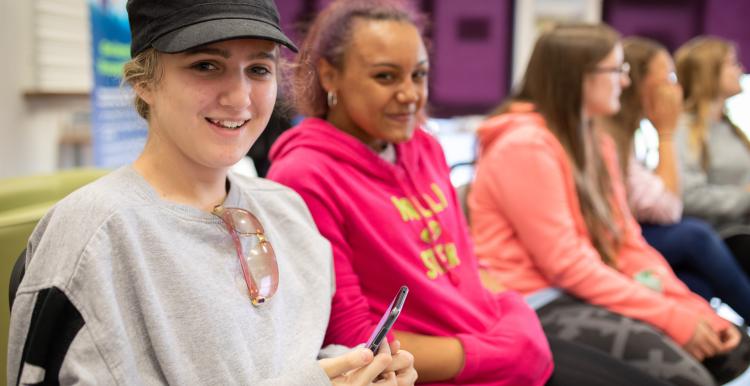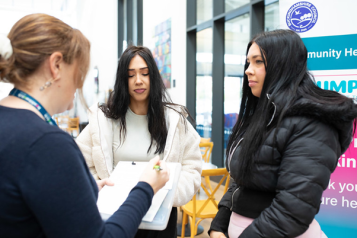Sheffield Foyer #SpeakUp: homeless young people face barriers to accessing sexual health information, screenings, and care

Sheffield Foyer provides accommodation, training and support to help young people who have been affected by homelessness to live independently and find a pathway into employment. Their team currently supports 60 young people across the city.
For this sexual health #SpeakUp project, they designed a survey and helped 21 young people to complete it. They also had follow-up chats to learn more about people's answers, and held an activity day where people could learn and talk about sexual health in a fun environment.
Find out about some of their findings below, or read the full report for more information.
How much information do people already have about sexual health?
Levels of knowledge did vary, but we found that many people aren't very confident about birth control and STIs - such as how STIs are passed on, signs and symptoms, how to prevent them, and who might be at risk. There was a general lack of understanding about the importance of sexual health, which was a concern to Foyer staff.
Do people get regular sexual health screenings?
We asked some questions about Sexual Health Sheffield - the service which provides sexual health information, screening and treatment in Sheffield. The organisation was fairly well known (two thirds of the group were aware of it) and trusted (just over half of people said they would contact Sexual Health Sheffield first if they thought they had an STI), but its services still weren't widely used. 38% of people had never used their services - or ever had a sexual health screening.
How can we improve access to sexual health services?
We would like to see higher levels of engagement with sexual health services, especially amongst vulnerable young people like those Sheffield Foyer work with. To understand how to do this, we need to know what the barriers are to accessing information, appointments and treatment.
The biggest issue raised by the young people we spoke to was the location of services - most screening is carried out at Sexual Health Sheffield, based at the Royal Hallamshire Hospital in the city centre. People raised the cost of transport, or having no transport available, as their biggest barrier. They also spoke about embarrassment or stigma, and not having anyone to go with them to an appointment.
18 out of 21 people said they would prefer to access sexual health services somewhere more local, and that they would get tested more frequently if these services were nearer.
To combat these barriers, we have made several recommendations to local decision-makers. These include:
- Proactive outreach work to help people understand more about the importance of sexual health, how to prevent STIs and unplanned pregnancies, and where to get checks and treatment.
- Bringing services closer to where people live - this could mean their GP practice, hubs/outpost clinics in community settings, or a 'sexual health bus' that can travel around the city
- Funding or supporting travel to sexual health appointments
- Staff who already work with vulnerable young people being trained to administer sexual health screenings, or being able to support people to use self-testing kits at various locations
What next?
We have asked the people who design, fund and provide sexual health services in Sheffield to respond to the recommendations we made based on our findings. We will publish their responses on our report page.
You can read the full report on our website below:


